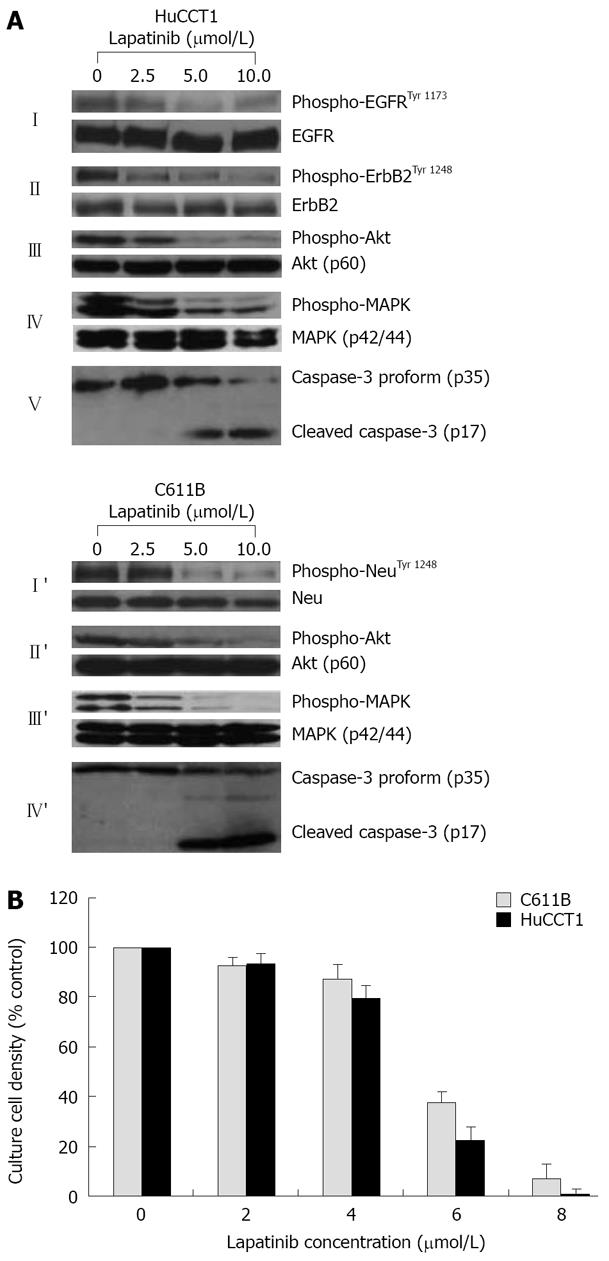Copyright
©2008 The WJG Press and Baishideng.
World J Gastroenterol. Dec 14, 2008; 14(46): 7033-7058
Published online Dec 14, 2008. doi: 10.3748/wjg.14.7033
Published online Dec 14, 2008. doi: 10.3748/wjg.14.7033
Figure 6 Dose-dependent inhibition test.
A: Western blots demonstrating dose-dependent suppression by the dual ErbB1 (EGFR)/ErbB2 (Neu) inhibitor lapatinib of phospho-EGFRTyr 1173 and/or of phospho-ErbB2/NeuTyr 1248, together with concomitant downstream inhibition of phospho-Akt and of phospho-p42/44 MAPK expressed in cultured human HuCCT1 and in rat C611B cholangiocarcinoma cells, respectively. Note that the lapatinib treatment in vitro did not affect corresponding total protein levels, but in both cell lines induced a dose-dependent activation of the apoptotic enzyme, caspase-3; B: Dose response curves for lapatinib on suppressing anchorage-dependent growth of cultured rat C611B and human HuCCT1 cholangiocarcinoma cells. Each value represents the mean ± SD (n = 3). Note the close relationship between the lapatinib concentrations required to induce prominent suppression of EGFR and/or ErbB-2/Neu signaling (≥ 5 μmol/L) and those associated with marked inhibition of in vitro cholangiocarcinoma cell growth (≥ 6 μmol/L). Lapatinib-induced suppression of C611B and HuCCT1 growth in vitro correlated with both a down-regulation of cyclin D1 protein expression and with a prominent apoptosis being induced in these respective cultured cholangiocarcinoma cell lines (data not shown).
- Citation: Sirica AE. Role of ErbB family receptor tyrosine kinases in intrahepatic cholangiocarcinoma. World J Gastroenterol 2008; 14(46): 7033-7058
- URL: https://www.wjgnet.com/1007-9327/full/v14/i46/7033.htm
- DOI: https://dx.doi.org/10.3748/wjg.14.7033









